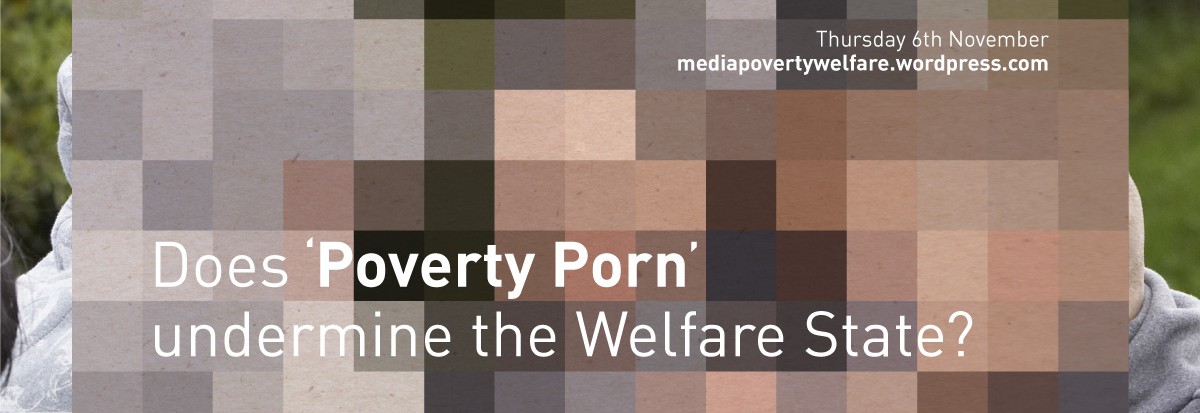When the BBC3 series People Like Us first aired in early 2013, it was met with conflicting reactions. The ‘welfare dependency’ rhetoric that contaminates public opinion sparked outrage within politics and the media, but more importantly altered the attitudes of many of Britain’s so called ‘ordinary working people’. Counter to this, programmes such as People Like Us and Benefits Street are highlighted by academics, social policy researchers and sociologists as ‘poverty porn’ – an unfair depiction of working class life representing residents on ‘sink estates’ as feckless, workshy, lazy individuals who would rather rely on hand-outs rather than support themselves.
It is fair to say that programmes such as this provide an unfair depiction of what it is really like to grow up poor in twenty first century Britain, with meritocratic ideas providing an ideological smokescreen for the real inequalities that characterise contemporary society. We can’t deny the successes that some working class children have had through working hard within education, in the same way that we cannot deny that children from similar family backgrounds (either affluent or poor) will experience very different outcomes depending on how lucky they are in life.
However, luck alone cannot explain such stark differences in educational attainment nationally between working and middle class children. In fact, the very idea of meritocracy itself does embitter the perception that people with higher natural ability are worth more both financially and socially than those who do not have the same talents, despite the contribution that our working class labour force does provide – especially towards the wellbeing of others such as cleaners, teaching assistants and factory workers.
Taking this into account, the decline of the manufacturing labour force and increasing job insecurity has created unstable transitions as young people become young adults, including domestically, professionally and residentially. As research shows that 52% of households in poverty now contain at least one working adult, it is clear that employment and qualifications are not necessarily routes out of poverty.
Indeed, despite ‘poverty pantomimes’ in the media representing ‘sink estates’ as the perfect locations to inhabit the ‘self-excluded’ poor, it is more logical to suggest that Britain’s economically deprived do not only live on council estates and that not everyone in social housing is out of work or wants to remain out of work. Further education can put young people in a better position yet the growth of our knowledge-based economy has heightened the competition between workers, with identikit CVs and a lack of demand for labour.
For young people that do transgress their working class identity (if we read this as success in higher education or entry to professional careers normally the domain of the middle class), they cannot suddenly ‘feel’ middle class: labels that have been placed on them from a very young age become inscribed on their identity. Class goes beyond the economic to a form of belonging and familiarity. Poverty in the media should therefore incorporate a fairer representation of youth who experience severe structural inequalities and have, as have their older and younger counterparts become subjected to severe forms of stigmatisation if they are unable to find work and are surviving (rather than living off) benefits.
There is nothing wrong with being working class; the problem is with how the working class are represented. A working class identity used to be something to be proud of. Now as Lynsey Hanley states ‘inequality exists, in spite and because of the welfare state’ and it is the very marginalisation of these families that places their children in an impossible position. Even if they do ‘succeed’ then they still may not perceive themselves differently form their childhood label and if they do not then the inequality spiral continues from one generation to the next.
*Charlotte is a third year Sociology student at the University of Manchester. She will be speaking at the event on Thursday.
References cited
Aldridge, H, Kenway, P, MacInnes, T, Parekh, A (2012) ‘Monitoring Poverty and Social Exclusion 2012’: York, The Joseph Rowntree Foundation: http://www.jrf.org.uk/sites/files/jrf/MPSE%202012%20Bookmarked%20REVISED.pdf
Hanley, L (2007) ‘Estates, an Intimate history’: London, Granta books
Pykett, Jessica (2014) ‘Representing Attitudes to Welfare Dependency: Relational Geographies of Welfare’: Sociological Research Online, 19 (3): 23 http://www.socresonline.org.uk/19/3/23.html
Ramesh, R (2012) ‘Benefits Stigma: How benefits report on welfare’: Guardian (Online): http://www.theguardian.com/news/datablog/2012/nov/20/benefits-stigma-newspapers-report-welfare#data
Reutter, L, Stewart, M, Veenstra, G, Love, R, Rapheal, D, Edward, M (2009) ‘Who Do They Think We Are, Anyway?”: Perceptions of and Responses to Poverty Stigma’:Qual. Health. Res’: 19:297 http://qhr.sagepub.com/content/19/3/297
Ryan, Frances (2014) ‘Poverty has been rebranded as a personal failure’: Guardian (Online) http://www.theguardian.com/society/2014/apr/22/disability-poverty-crisis-government-policies?CMP=twt_gu



Excellent article.
LikeLike
Fantastic. Couldn’t agree more. Well written and impassioned article for fairness and realism in representation of people who are excluded by the organization of society.
LikeLike